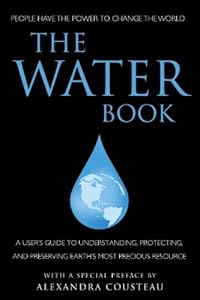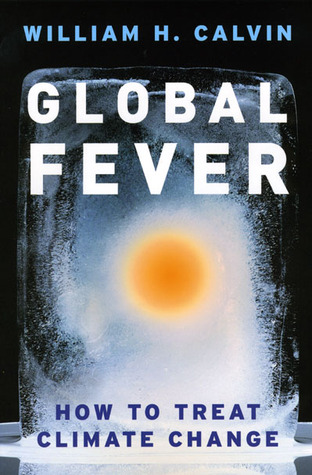The list below has a few examples, but the library has many more that could satisfy your curiosity! To find more, search the catalog or ask a librarian for suggestions.
Nonfiction

Rachel Carson's Silent Spring, first published in 1962, awakened the public to the danger posed by pesticides like DDT. This book was one of the first to launch many people into deep awareness and concern for the environment.
Al Gore's An Inconvenient Truth, in which he presents evidence that global warming is already having serious effects, became quite famous partly because many readers found it accessible and even entertaining while still being informative.

Global warming may seem like a distant problem, but Colin Woodward's first-hand account, Ocean's End: Travels Through Endangered Seas, shows how it is having major effects in some regions.

The American Southwest is a unique environment, with a relatively small water supply. William DeBuys presents an image of what it could be like in the future due to human overpopulation and overuse of resources in A Great Aridness: Climate Change and the Future of the American Southwest.
Stephen Faris suggests that the effects of climate change wouldn't just be environmental - it could affect human health, politics, economies, and social customs - in Forecast: The Consequences of Climate Change, from the Amazon to the Arctic, from Darfur to Napa Valley.

If climate change is a disease, William H. Calvin has a cure: he presents clean technology prescriptions in Global Fever: How to Treat Climate Change.

If climate change is a disease, William H. Calvin has a cure: he presents clean technology prescriptions in Global Fever: How to Treat Climate Change.

 Obtaining safe drinking water is a challenge for people all over the world. Rick Smolan and Jennifer Erwitt tell fascinating stories of how people have done it in Blue Planet Run: The Race to Provide Safe Drinking Water to the World.
Obtaining safe drinking water is a challenge for people all over the world. Rick Smolan and Jennifer Erwitt tell fascinating stories of how people have done it in Blue Planet Run: The Race to Provide Safe Drinking Water to the World.
Nonfiction

Rachel Carson's Silent Spring, first published in 1962, awakened the public to the danger posed by pesticides like DDT. This book was one of the first to launch many people into deep awareness and concern for the environment.
Al Gore's An Inconvenient Truth, in which he presents evidence that global warming is already having serious effects, became quite famous partly because many readers found it accessible and even entertaining while still being informative.

Global warming may seem like a distant problem, but Colin Woodward's first-hand account, Ocean's End: Travels Through Endangered Seas, shows how it is having major effects in some regions.

The American Southwest is a unique environment, with a relatively small water supply. William DeBuys presents an image of what it could be like in the future due to human overpopulation and overuse of resources in A Great Aridness: Climate Change and the Future of the American Southwest.
Stephen Faris suggests that the effects of climate change wouldn't just be environmental - it could affect human health, politics, economies, and social customs - in Forecast: The Consequences of Climate Change, from the Amazon to the Arctic, from Darfur to Napa Valley.

If climate change is a disease, William H. Calvin has a cure: he presents clean technology prescriptions in Global Fever: How to Treat Climate Change.

After learning about the dangers the planet faces, you may want to know what you can do to protect vital resources. For some ideas, check out The Water Book: A Users Guide to Understanding, Protecting, and Preserving Earth's Most Precious Resource.
If climate change is a disease, William H. Calvin has a cure: he presents clean technology prescriptions in Global Fever: How to Treat Climate Change.

For readers interested in knowing where air pollution comes from and what can be done about it, Dana Desonie's book, Atmosphere: Air Pollution and Its Effects, is informative.
Derrick Jensen and George Draffan show how deforestation has changed history and how it can again in Strangely Like War: The Global Assault on Forests.
 Obtaining safe drinking water is a challenge for people all over the world. Rick Smolan and Jennifer Erwitt tell fascinating stories of how people have done it in Blue Planet Run: The Race to Provide Safe Drinking Water to the World.
Obtaining safe drinking water is a challenge for people all over the world. Rick Smolan and Jennifer Erwitt tell fascinating stories of how people have done it in Blue Planet Run: The Race to Provide Safe Drinking Water to the World.
Fiction
If you'd prefer to look at Earth Day themes through the lens of an entertaining novel, try these:
In Barbara Kingsolver's Flight Behavior, a woman's life is changes when she witnesses the strange phenomenon of an enormous butterfly migration and must sort out the climate change implications.
Stephen Baxter's novel Flood takes readers to a world where sea levels are rapidly rising, overwhelming major cities and forcing people to try to find a place where they can survive.
James Braziel's imagined America, in Birmingham, 35 Miles, is a hot place due to a hole in the ozone layer, and society is changing with the climate. The protagonist of this novel faces a difficult choice - should he attempt a dangerous journey to a city that may be a better place to live, in the name of the woman he loves?







No comments:
Post a Comment
Note: Only a member of this blog may post a comment.